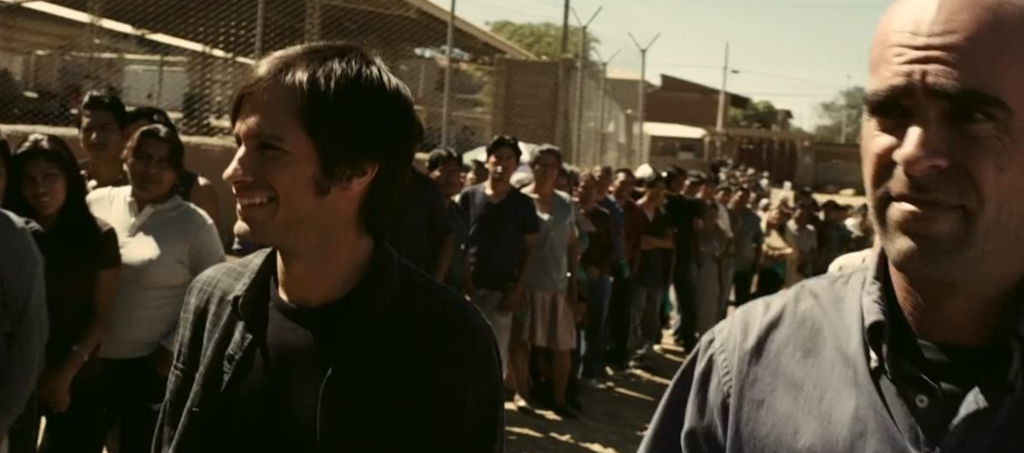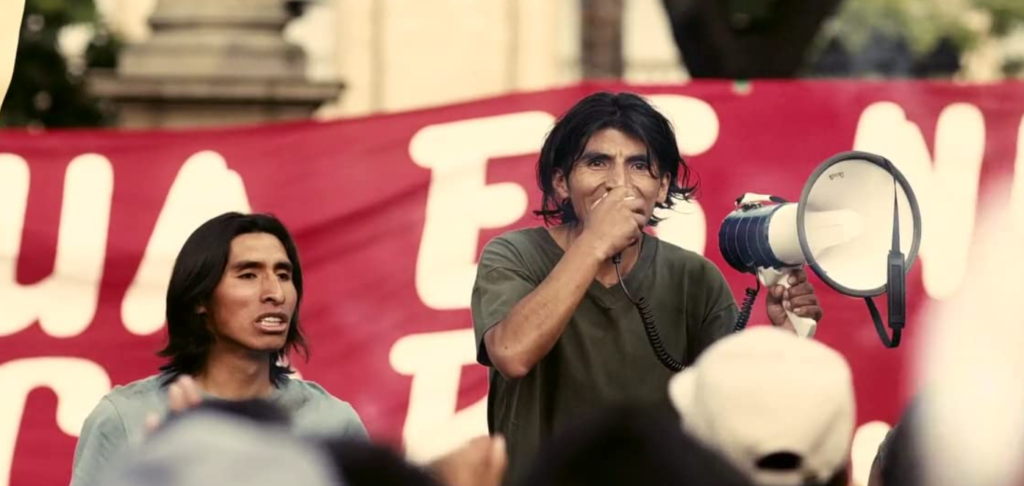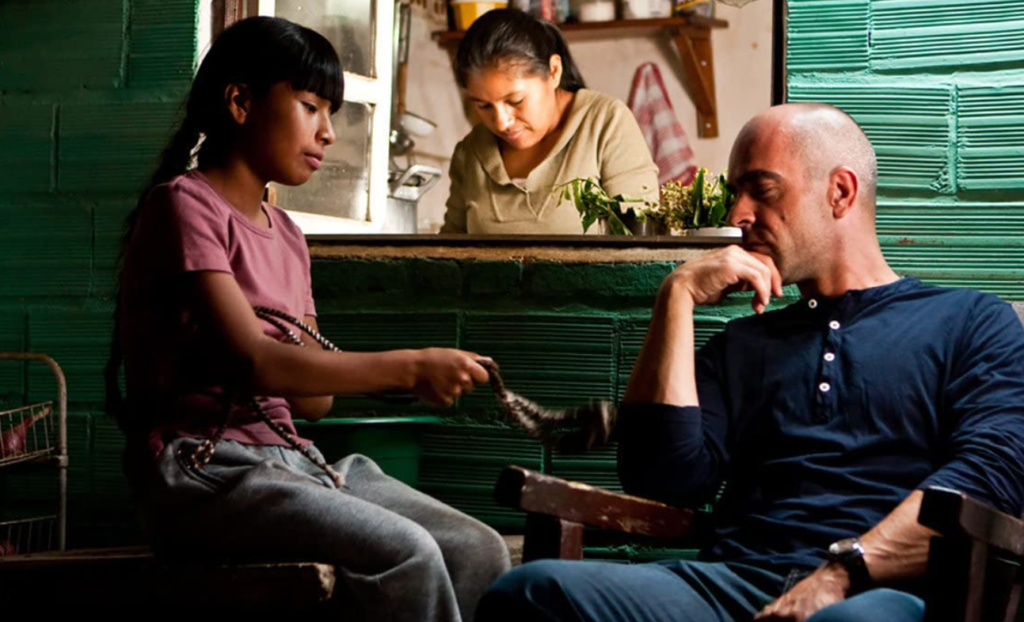Luke Skywalker, Gay Icon: Part 1
Star Wars is better if you believe that Luke Skywalker is gay. You can't change my mind.
Incluvie Foundation Gala - Learn More
When discussing diversity in film, it can be tempting to mistake the mere presence of diversity for meaningful representation. All too often, however, films cast members of underrepresented groups with no real intention of telling their stories. For example, films that aim to criticize eurocentrism and colonialism often inadvertently perpetuate eurocentrism by placing the colonizer at the center of the narrative.
This hypocrisy appears in Icíar Bollaín’s 2010 film También la Iluvia, also known by its English title Even the Rain, the story of an idealistic director and his ruthlessly practical producer attempting to make an anti-colonial film about Columbus. They shoot the film in Bolivia and cast Indigenous (specifically Quechua) people as extras to save money, but growing protests against the privatization of water soon disrupt filming. The film portrays the Quechua’s exploitation at the hands of both the Bolivian government and the Spanish filmmakers. It also engages in the same exploitive patterns that it claims to condemn. While También la Iluvia attempts to critique colonialist portrayals of Indigenous people, it ultimately repeats colonialist narratives by centering Spanish characters and relegating Quechua characters to a supplementary status.

From the opening of the film, También la Iluvia treats its Quechua characters as background decoration. When producer Costa and director Sebastián arrive at an audition site to cast actors as Taino characters in their film, they see an immense line of people waiting for a chance to audition. The camera pans across the crowd of Quechuas without singling any of them out. With the exception of the character Daniel and his daughter, none of the Quechuas in the scene are treated as individuals. They have no voice, no character, and no role in the scene beyond acting as living scenery. This pattern continues throughout the film. Daniel and (to a much lesser degree) his wife and daughter contribute to the film’s narrative and have stories and motivations of their own. The other Quechua characters exist only in the background, filling in as the natives in Sebastián’s film or cheering as Daniel rallies them at a protest. They are “extras” both textually and meta-textually, serving no narrative purpose to Tambien la Iluvia or the film within the film.
Meanwhile, the film contains a plethora of Spanish characters with distinct personalities and motivations. In addition to Costa and Sebastián, there is Antón, an alcoholic who hides his troubled home life behind sardonic humor; Maria, the assistant director who wants to make a documentary film about the Bolivian water wars and seems to harbor a hidden crush on Sebastián; Alberto, an actor who hypocritically celebrates his character for standing up to injustice while reacting to actual injustice with cowardice; and several more. The film affords all of its Spanish characters, both major and secondary, with backstories and inner emotional lives. Conversely, with the exception of Daniel and his family, the film strips its Quechua characters of their individuality. The lack of speaking roles for Quechua actors deprives them of their voices and their right to tell a story that is nominally their own.
Ethnically unbalanced casting in films like También la Iluvia has a very real financial impact on indigenous actors. The majority of the Quechua roles in the film are minor or non-speaking parts, which result in far less pay. Daniel is the only major Quechua character, while most of the main cast is Spanish. This deficit of roles for Indigenous actors vastly limits opportunities for actors like Juan Carlos Aduviri, who plays Daniel. Comparing Aduviri’s filmography to those of his co-stars Luis Tosar (who Spanish and white) and Gael Garciá Bernal (who is Mexican and, to the best of my knowledge, non-Indigenous) clearly illustrates the film industry’s ethnic and racial bias. Whereas Tosar currently has 113 acting credits to his name and Bernal has 62, Aduviri has only 12, five of which are short films. The discrepancy becomes even greater when gender comes into play. Daniel’s wife and daughter, the only other notable indigenous speaking roles in the film, are played by Leónidas Chiri and Milena Soliz. Neither actress has appeared in any films before or since También la Iluvia. Indigenous actors face immense challenges when seeking roles, let alone speaking roles, making it harder for them to continue their acting careers and tell Indigenous stories.

But perhaps the most troubling aspect of También la Iluvia is its exploitation of an Indigenous struggle in order to humanize Spanish characters. The film claims to tell the story of the Bolivian water wars, but it does so entirely through the Spanish gaze. The story is ultimately not about the Indigenous and working-class battle for their right to water; rather, it is about how observing their struggles affects the Spanish filmmakers.
This form of exploitation is clearest in the film’s climactic scene when the clash between protestors and Bolivian soldiers reaches its height. Daniel’s wife, Teresa, begs Costa to help her retrieve her injured daughter Belén from a makeshift clinic at the center of the protest. After much debate, both with himself and with Sebastián, Costa decides to help her. The two drive through the chaotic streets, finally reaching the clinic and finding Belén. They bring her to the hospital, and a doctor tells Costa that although Belén will never walk again, she most likely would have died if Costa hadn’t brought her to the hospital in time.
This scene takes advantage of Indigenous stories and characters in order to forward Costa’s development. His concern for Belén and his decision to prioritize her over the success of his film humanize Costa, showing that he is more than a callous businessman. His actions redeem him in Daniel’s eyes, suggesting that the audience should forgive him as well. Teresa and Belén are little more than walking character development tools. Both have more screen time with Costa than with Daniel, and they are more relevant to Costa’s storyline than Daniel’s. Daniel is the only Quechua character afforded a backstory and a home life, but his family tells the audience more about Costa than about Daniel himself.

Structurally, the scene also frames Costa as the hero in the film’s final act, thereby elevating his role above Daniel’s. Daniel is notably absent from the scene, despite holding a leadership role among the Quechua protesters. Instead, the audience views the protest through Costa’s eyes. The Bolivian water wars drive the film’s plot and give it its title. And yet, También la Iluvia tells the conflict’s final protest from a Spanish rather than Bolivian perspective. Essentially, the film appropriates a specifically Indigenous and Bolivian struggle in order to tell a Spanish story about Spanish characters.
También la Iluvia’s failures as an anti-colonial narrative demonstrate the need for films that prioritize the colonized over the colonizers. Even nominally anti-colonial films often fall into colonial behaviors, and denouncing colonialism is only the first step. If they wish to actively combat colonial narratives, filmmakers must make Indigenous people the subject rather than the object and allow them to write their own narrative rather than dictating it for them.

Related lists created by the same author
Star Wars is better if you believe that Luke Skywalker is gay. You can't change my mind.
Related movie/TV/List/Topic